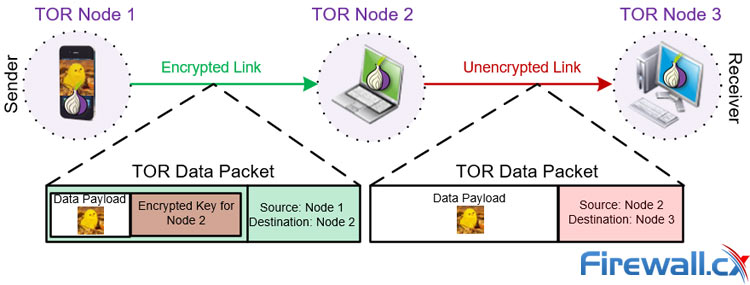Featured
Table of Contents
Whonix ™ Versus Vpns
The developers explain Tor as software that assists secure you online. It's a complimentary tool that many privacy nuts utilize. When you utilize the Tor Internet browser, it redirects your web traffic through the Tor network of volunteer servers spread around the world. Each connection bounces through 3 servers before reaching the designated destination.
Assists bypass geoblocking and censorship: if some site is obstructed in your country, Tor can enable you to access it. Slow: your data gets bounced by means of three random relays. Your connection can just be as fast as that of the slowest node. That's why numerous. onion websites look so barebone compared to regular sites.
Lots of Tor users would have to wait three times as long to download something. As Tor runs on a volunteer network, you can't understand if your information isn't being obstructed.
Can I Use A Vpn With Tor?
Bad for accessing specific geoblocked material: it's not easy to access geoblocked material that is just available in a single nation. Random node choice means you can't really control the country where your exit node and the IP service checks out will be. Limited accessibility to websites: some daily sites obstruct Tor network connections.
Having the ability to pick what server you'll connect to, only routing information via a single server, and having the company look after the servers guarantees that the VPN connection is almost as quick as utilizing unprotected internet. However, this technique is more expensive to keep. Great internet speed: considering that VPNs only bounce your signal via a single server, your connection is much quicker.
This permits Tor to ensure that none of the servers know both the sender of the information and its destination, while a VPN guarantees much better speed and an actual option of server. Especially, a VPN can offer a multiple-server feature. For instance, Dynamic Multi, Hop enables Surfshark VPN users to choose 2 servers to path their information through.
Tor And Vpn: How Well Do They Mix?
In fact, you ought to do so if you're accessing. onion sites. What's the benefit? If your web traffic links to the VPN server before the Tor network, the VPN server spoofs your IP. That means that even if the Tor entry node is jeopardized, the interested celebration will not be able to get your IP address.
As long as you have actually a trusted VPN service provider, utilizing the Tor internet browser with a VPN may be a deserving trade-off. Tor and VPNs are personal privacy tools with comparable purposes.

Tor is safer for sharing delicate information or anything else that may put you at danger. Overall, it's primarily for browsing it's sluggish and not suited for downloading files or streaming. A VPN, on the other hand, is much quicker. It can likewise use the same levels of security and privacy if you have an excellent and trusted provider.
Tor Vs Vpn: Which One's Better? [Expert's Guide]
Tor will secure the Spotify website but not the app, while a VPN will secure both. Sort of. Tor runs your data through several layers of file encryption at when, while VPN service providers generally only use one layer. Still, Tor just encrypts the traffic that goes through the web browser itself.
Yes. Tor conceals your IP when you are trying to find something on Tor. It's important to note, though, that this only uses to the internet browser itself. Any traffic that does not go through Tor will be exposed. Using a VPN with Tor can lead to internet speed slowdowns: You are routing information via 4 servers; The VPN server and the Tor entry server may be located far apart.
VPN is much better for streaming, downloading, and other day-to-day uses. Simply put, the distinction is that Tor paths your internet traffic via 3 random servers and encrypts it three times, VPN routes it by means of a single server of your option and encrypts it as soon as, and a proxy simply routes your traffic by means of a single server.
Tor Vs. Vpn: Which Should You Choose?
No matter why you want to remain incognito online, you're likely to choose a Virtual Private Network (VPN) or Tor browser. To put it just, Tor is best for those transferring delicate details.
Table of contents Tor and VPN are tools used to remain confidential online. The Tor internet browser is a free, open-source task allowing you to browse the web anonymously.
Yes, the name sounds silly, but the idea behind it is fantastic: the Tor internet browser network is built of layers upon layers of independent nodes run by Tor users. A VPN assists you secure your online privacy by producing a protected connection to any network or server over the web.
Vpn, Proxy Or Tor: What's The Difference And What's Best?
The key distinction in between Tor and a VPN is that there are several VPN tools and company offered but only one Tor browser network. Tor counts on a decentralized layer of independent nodes to move data safely, while VPN software connects to a central server to supply a safe and secure VPN tunnel.
Latest Posts
Best Free Vpn For Business In 2023
Why You Need A Vpn, And How To Choose The Right One
15 Leading Vpn Software For Startups For 2023